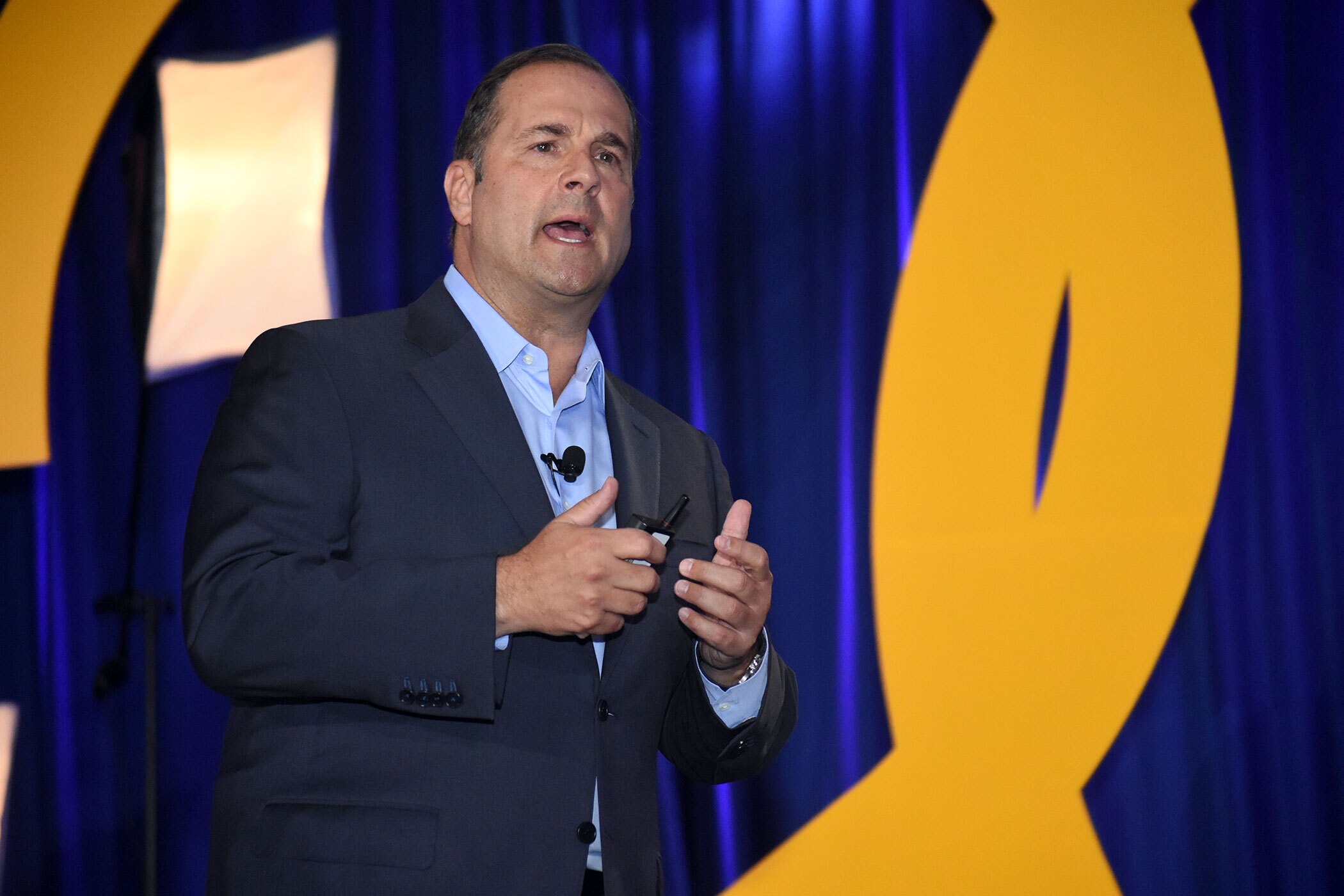LOS ANGELES — Several hoteliers during the second day of the Americas Lodging Investment Summit used a phrase not heard since before the pandemic: cautious optimism.
It was a buzzword in recent years as hoteliers were trying to figure out just how long the upcycle would last and they would benefit from ongoing revenue-per-available-room growth. It takes a different meaning now as hoteliers generally believe the worst is over, but there's still plenty outside of their control that could cause them problems in the near future.
Trends in the U.S. hotel industry are generally positive. Occupancy, rate and RevPAR have been heading in the right direction for months. Consumers are spending comfortably thanks to savings and federal stimulus dollars. Numerous indicators point to pent-up travel demand.
At the same time, COVID-19 vaccination rates have slowed, and the Delta variant has spread quickly across the U.S. Because of a new Los Angeles County Department of Public Health mandate, attendees of the conference had to wear masks while inside the host hotel, a constant reminder that while hotels are recovering, the pandemic is not yet over.
Photo of the Day

Quotes of the Day
“I think you need to be a seller. This is a window that we’re seeing — and it doesn’t matter what segment you’re in — that we don’t know if it’s sustainable or an aberration. Look, if somebody is stupid enough to pay a certain price, you’ve got to be smart enough to take it. There are a lot of stupid people in the world today who are paying crazy numbers for full-service hotels. I think this window is going to be around for about 18 months.”
—Homi Vazifdar, managing director of Canyon Equity LLC
"I think one of the things that really defined my growth mindset, if that's just the word, is that each of these new chapters forced me way out of my comfort zone into a place first in business, then in international business, then in the global development business, then in the leadership of a global hotel company, and every step of the way, requiring me to think differently about where this next phase is going to go. ... Even though I was at the same company for 24 years, it was a constant source of reinvention and really, really interesting and a fun adventure, too."
— Kathleen Taylor, chair of the board of the Royal Bank of Canada and former president and CEO of Four Seasons Hotels and Resorts
Data Point of the Day
STR President Amanda Hite said demand growth beat her company’s estimates in the second quarter, growing 106% year over year compared to a projection of 98%. STR is CoStar’s hospitality analytics firm.
Editors' Takeaways
The U.S. hotel industry has been predicting a pickup in business travel this fall, and while that’s still widely held, some seem worried it won’t be as much as they previously hoped.
Leisure demand continues to go strong over the summer, allowing hoteliers to hold or even push rates. Everyone knows that level of demand comes with a deadline: Labor Day. As most states start the school year at that time, hoteliers know parents aren’t going to take many vacations after kids are back in class. Given the ongoing vaccination efforts, there will be far fewer school districts offering remote or hybrid options, meaning kids will be back in classrooms. Besides, there are only so many vacations a family can take in a year.
Had the industry continued on with the pace of demand recovery prior to the Delta variant spreading, the tone would be much different when talking about the prospects of future business demand. Some businesses are back in the office, but there’s a strong push among employees to hold on to that flexibility and keep some degree of working from home. Other businesses, even if they are able to get employees back in the office, are holding off on travel for pandemic-related or budgetary reasons. To top it off, no one knows when international travel will return to the U.S., which would boost both leisure and business demand.
Long term, everyone believes business travel will come back close to, if not as much as, before. In the short term, however, any delay in the return of business travel just pushes back a much more robust recovery that much further.
— Bryan Wroten, senior reporter
@HNN_Bryan
Some have noted there will be bits and pieces popping up based on markets and how individual properties fared during the pandemic, but that’s not significantly different than any other portion of any other economic cycle. This opinion isn’t held universally, with some investors like Vesta Hospitality’s Rick Takach saying the patience among commercial mortgage-backed security services will eventually come to an end, but it’s abundantly clear the many, many private equity investors and funds that were eagerly anticipating a once-in-a-life time buffet of distressed opportunities will ultimately be at least somewhat unhappy with the final result.
If you’ve been waiting for the wave of distress to hit the hotel industry to pick up assets, there’s a pretty good chance you’ll end up being disappointed. That’s the takeaway from many owners and investors at the second day of the ALIS, with relatively few people expecting distressed assets to hit the market in a big way.
— Sean McCracken, news editor
@HNN_Sean
